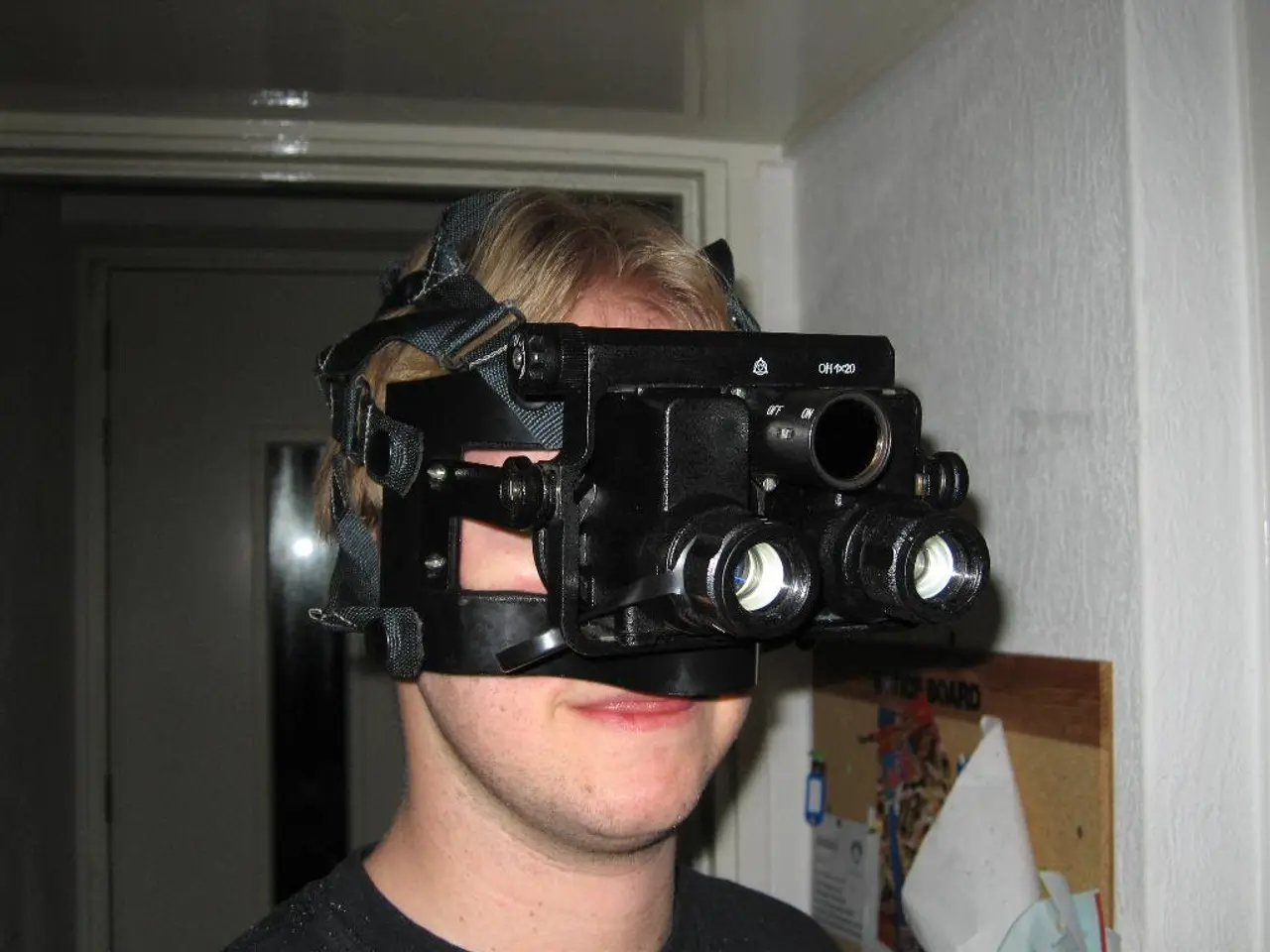Top Virtual Reality Applications for Physiotherapy: Innovative Rehab Methods
In the realm of healthcare, innovation is constantly pushing boundaries, and one area where this is particularly evident is physical therapy. A new wave of Virtual Reality (VR) technology is being harnessed to create immersive and interactive experiences that are revolutionising the way patients approach their rehabilitation programs.
One of the key advantages of VR therapy is its ability to provide real-time feedback on movement quality. This feature allows patients to adjust their form and optimise their workouts, ensuring they are making the most of their rehabilitation time.
Remote rehabilitation with VR is another significant development. VR therapy apps could potentially allow patients to participate in effective rehabilitation programs from the comfort of their homes. With remote monitoring and guidance from physical therapists, patients can progress through their programs without the need for frequent in-person appointments.
However, it's important to note that not all individuals may be suitable candidates for VR therapy. Those with certain medical conditions, such as severe balance problems or a history of motion sickness, might need to approach this technology with caution.
There are several companies specialising in creating personalised virtual rehabilitation programs. VerityXR, for instance, focuses on VR in physical rehabilitation, integrating immersive technology in musculoskeletal and neurological therapies. Their custom virtual environments enable clinicians to precisely tailor rehabilitation to individual patient needs, enhancing neuroplasticity and functional recovery.
Canada's Medical Devices Research Centre presents bWell, a platform providing VR-based cognitive assessment and rehabilitation. While primarily focused on cognitive health and conditions like depression, bWell includes multisensory exercises tailored to individual patients and collects physiological data to optimise therapeutic outcomes.
Bitcot, a custom healthcare software developer, builds tailored solutions and may develop personalised VR healthcare applications. They focus on optimising workflows, enhancing patient engagement, and integrating AI, big data, and IoT for remote patient monitoring, which can be adapted for virtual rehabilitation programs personalised to patient conditions for optimal healing.
In a physical therapy setting, a patient wears a VR headset and enters a virtual environment designed for targeted exercises. LIV (Life In VR) can be used for VR workouts and exercise programs, allowing users to see themselves virtually while exercising in real life. Virteasy offers virtual reality experiences designed to improve balance, coordination, and overall fitness, complementing physical therapy programs with engaging virtual workouts.
RehabVR is a VR physical therapy app designed for post-surgical rehabilitation and pain management, offering a comprehensive library of exercises that can be tailored by physical therapists. Some insurance plans may cover the costs associated with VR headsets and therapy app subscriptions for physical therapy.
Future VR therapy apps might integrate with wearable technology to provide real-time feedback on muscle activity, heart rate, and other physiological data. They may also incorporate mindfulness exercises and cognitive behavioural therapy (CBT) techniques within the virtual environment to promote overall well-being during recovery.
However, it's worth noting that VR physical therapy apps require compatible VR headsets and potentially powerful computers to run smoothly. For those considering custom VR solutions for physical therapy, Proven Reality can be contacted for collaboration with physical therapists and VR developers to create personalised rehabilitation programs.
As the field of VR therapy continues to evolve, we can expect to see even more innovative applications and personalised solutions designed to make rehabilitation more engaging, effective, and accessible for patients.
- Technology advancements in healthcare, particularly in physical therapy, are revolutionizing rehabilitation programs through the integration of Virtual Reality (VR), which offers immersive and interactive experiences.
- VR therapy, with its real-time feedback on movement quality, allows patients to optimize their workouts effectively, providing an advantage during their rehabilitation time.
- Remote rehabilitation with VR therapy apps is a significant development, offering potential for patients to engage in effective rehabilitation programs from home, reducing the need for frequent in-person appointments.
- companies such as VerityXR, bWell, and Bitcot, specialize in creating personalized virtual rehabilitation programs, enhancing neuroplasticity and functional recovery through precision tailoring of rehabilitation to individual patient needs.
- The future of VR therapy may involve integration with wearable technology for real-time feedback on physiological data and the incorporation of mindfulness exercises and cognitive behavioral therapy (CBT) techniques within the virtual environment.




